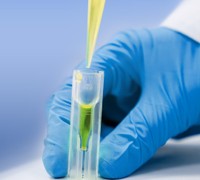
Spectrophotometers are essential tools in life science labs, used daily for quantifying DNA, RNA, proteins, and assessing sample purity. But as with any technology, even the most reliable systems eventually fall behind. If you're starting to experience issues or inefficiencies with your current setup, it may be time to reassess whether your spectrophotometer is still meeting your lab’s needs.
When should you consider upgrading your spectrophotometer?
- Inconsistent or unreliable results
A spectrophotometer should deliver reproducible, dependable data every time. If you're seeing variability in measurements between runs or instruments, it could be a result of worn optics, aging hardware or even calibration drift. Inaccurate nucleic acid or protein quantification can seriously compromise downstream experiments, from PCR to sequencing and protein assays.
- Time-consuming sample preparation
Are you still diluting high-concentration samples manually or struggling with tiny sample volumes? Older systems often lack the dynamic range to handle both concentrated and dilute samples, forcing you to adjust your workflow constantly. This not only slows things down but increases the risk of pipetting errors and sample loss.
- High maintenance and frequent downtime
If your spectrophotometer is demanding regular recalibration, cleaning, or servicing - or if replacement parts are hard to source - it's likely affecting lab productivity. Time spent troubleshooting is time taken away from experiments, and ongoing maintenance costs can quickly add up.
- Limited sample compatibility and flexibility
Today’s labs need tools that can adapt. If your current system is limited to just cuvette-based measurements or lacks support for modern assay workflows (like microvolume analysis or compatibility with fluorescent dyes), you may be stuck using workarounds (or multiple instruments) to get the job done.
- Outdated software and poor data connectivity
Modern labs depend on efficient data handling. If your spectrophotometer’s software feels clunky or if exporting data is a hassle, you may be losing valuable time. Lack of connectivity with cloud storage, LIMS, or external analysis tools can create bottlenecks, especially in collaborative environments.
Why choose a DS-11 model from DeNovix as your next spectrophotometer?
If any of these issues sound familiar, it might be time to explore newer, more efficient spectrophotometry solutions. The latest instruments offer improved accuracy, speed, and ease of use - with modern features designed for today’s research environments.
One such option is the DeNovix DS-11 Series, which combines microvolume and cuvette measurements in a single compact system. With smart pathlength technology, intuitive touchscreen software, and no need for maintenance or calibration, it’s engineered to remove the common roadblocks that come with aging instruments.
Whether you’re looking to improve data quality, streamline workflows, or future-proof your lab setup, upgrading your spectrophotometer can make a significant impact.
To make upgrading even easier for you, take advantage of our trade in offer for a limited time. We'll take in your old instrument and give you 25% off your brand new upgrade.
